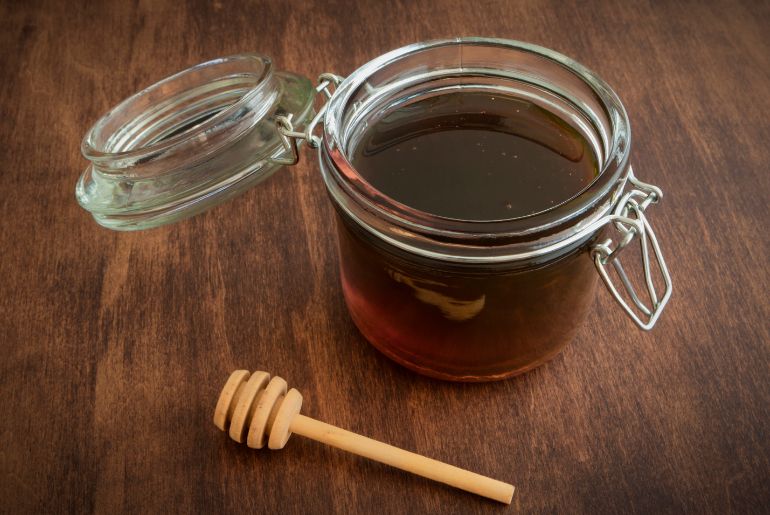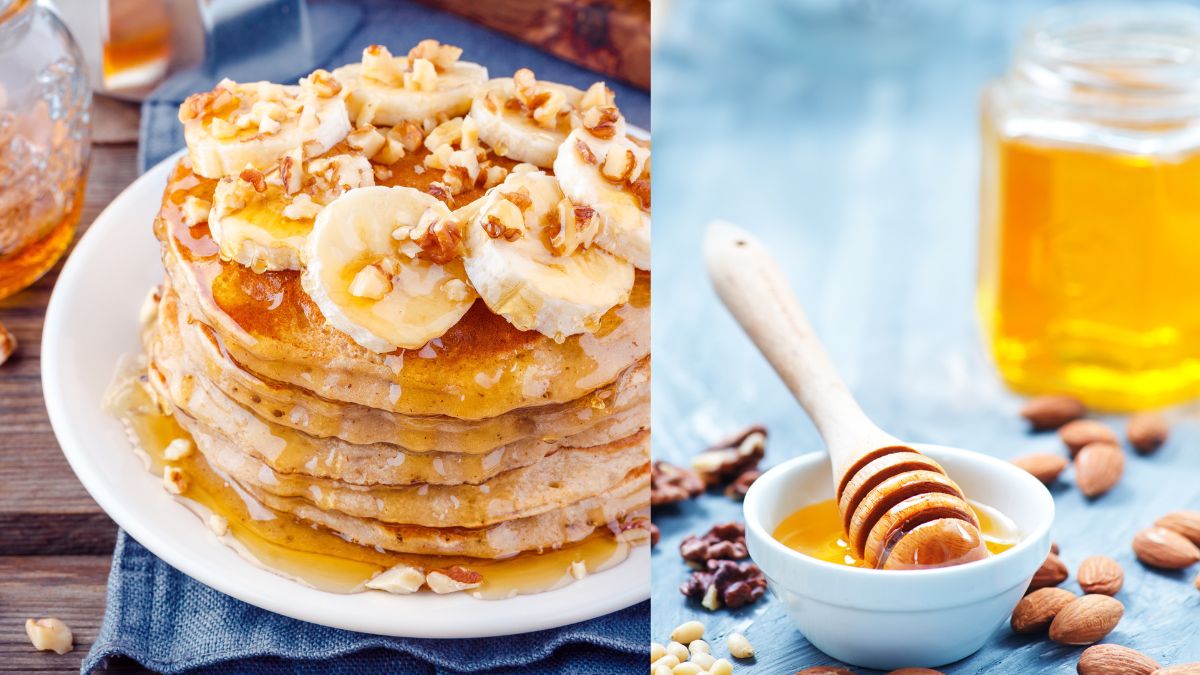While many vegans find alternatives for most animal-based products, the topic of honey and its substitutes often sparks debates within the vegan community. For vegans, the consumption of honey presents a dilemma rooted in ethics, environmental concerns, and personal beliefs. Another thing to consider is the environmental impact of honey production. Honey is also one of veganism’s most contentious themes.
Why Vegans Overlook Honey Consumption?
This is why honey is NOT #vegan 😢 pic.twitter.com/fMOTNvnGgV
— PETA (@peta) September 12, 2018
While many vegans conscientiously avoid honey due to concerns about bee welfare and exploitation, there is a subset within the vegan community that chooses to overlook or embrace honey. The issue of whether honey should be included in a vegan diet is complex.
One of the primary reasons some vegans overlook honey is the lack of consensus within the vegan community regarding the ethical implications of beekeeping. Some commercial beekeeping practices indeed involve potentially harmful procedures such as wing clipping, artificial insemination, and aggressive honey extraction methods. These methods may be considered exploitative and potentially damaging to the bee population’s well-being.
In 2022, India’s honey market had a value of INR 23.3 billion. Honey demand may encourage beekeeping, thereby disturbing the natural balance of ecosystems and reducing wild bee populations. Furthermore, large-scale monoculture agriculture, which is frequently connected with honey production can contribute to habitat degradation and pesticide use. This puts pollinators at risk.
There is no doubt that honey is a byproduct of bees and that the commercial honey industry is detrimental to bee health. The decision to consume honey by a vegan ultimately depends on the individual, the option between ethically and commercially produced honey, and your belief that bees are sentient beings who should not be exploited.
As a result, many vegans choose to avoid honey altogether, even if they miss its unique properties and flavours. However, many brands are catching on to lab-made honey’s improved sustainability which could supplant the need for importing the sweet treat. Bee-free honey is delicious and a vegan’s dream come true. However, it’s uncertain if it could address intricate issues with the food chain, such as pollinator biodiversity. Nonetheless, interest in this technologically advanced substitute paved the way.
Also Read: 6 Vegan Places In Delhi-NCR That Serve Soul-Nourishing Food
Are There Vegan Alternatives To Honey?
The choice to adopt a vegan lifestyle often involves a conscientious effort to avoid all forms of animal exploitation, which extends to commonly used animal-derived products like honey. These plant-based alternatives can sweeten a salad dressing or top a yoghurt parfait just as well as the real thing:
1. Agave Nectar

Although agave nectar is frequently used to sweeten cocktails, it has many additional applications and you may already have it on your bar cart. Agave nectar, derived from the agave plant, has become a popular choice among vegans seeking a honey substitute. What makes agave nectar an attractive alternative is its lower glycemic index compared to honey. This makes it a suitable option for those monitoring their blood sugar levels. Additionally, agave nectar dissolves easily in both hot and cold liquids, making it a practical choice for sweetening beverages like tea or coffee. With a similar viscosity and sweetness, agave nectar is a versatile sweetener that works well in a variety of recipes.
2. Maple Syrup
Maple syrup, which is prepared from boiling maple tree sap, is a fantastic honey alternative even if it’s not quite as thick as honey. It offers a rich, caramel-like taste that enhances both sweet and savoury dishes. Beyond its delicious flavour, maple syrup contains essential minerals like manganese and zinc. Vegans appreciate maple syrup as a versatile option for topping pancakes, waffles, and oatmeal or as a key ingredient in salad dressings and marinades. The taste will be deeper if you use darker maple syrup.
3. Date Syrup

Date syrup, crafted from the concentrated juice of dates, presents a wholesome alternative to honey. What sets date syrup apart is its natural sweetness. Boasting a deep, caramel flavour, date syrup adds a rich sweetness to various dishes. With a consistency similar to honey, it serves as an excellent drizzling option for desserts, and breakfast items, and even as a topping for toast. Like many other ingredients on this list, it’s a common component in Middle Eastern cooking and can be added to give baked items a hint of sweetness.
4. Molasses
Molasses is a vegan-friendly sweetener that imparts a distinct, robust flavour to both sweet and savoury dishes. With a thick consistency and a deep, earthy taste, molasses serves as an excellent substitute for honey in certain recipes. The flavour texture adds depth to gingerbread cookies, cakes, and other treats. For vegans seeking a sweetener with a unique flavour profile and nutritional content, molasses stands out as a compelling choice. Molasses and maple syrup may have the same appearance, but their flavours are significantly different.
5. Coconut Nectar
Derived from the sap of coconut, coconut nectar offers a vegan alternative to honey with a delicate sweetness and a hint of caramel undertones. It has gained popularity in the global market as a versatile sweetener. Its versatility extends from drizzling over pancakes to incorporating it into sauces and dressings. Drizzle it over toast and waffles, or use it to sweeten salad dressings, desserts, and even your daily cup of coffee.
6. Sorghum Syrup

With a robust and distinctive flavour, sorghum syrup adds depth to dishes. It is a molasses-like sweetener derived from the juice of sorghum cane. It is a more nutrient-dense choice compared to refined sweeteners. Its versatility makes it a compelling option for those seeking a vegan-friendly sweetener that complements a variety of dishes, often used in baking, glazes, and marinades.
The world of vegan alternatives to honey is rich and diverse. As the demand for plant-based options continues to rise, the culinary landscape for vegans expands. Whether driven by ethical considerations, health-conscious choices, or a desire for culinary variety, the availability of these alternatives empowers vegans to enjoy the sweetness of honey.
Cover image credits: Canva
For more such snackable content, interesting discoveries and the latest updates on food, travel and experiences in your city, download the Curly Tales App. Download HERE.
Good news! We are on WhatsApp! Subscribe to Curly Tales WhatsApp Channel to stay up-to-date with exclusive content and BTS. Join HERE.
First Published: January 03, 2024 5:39 PM



